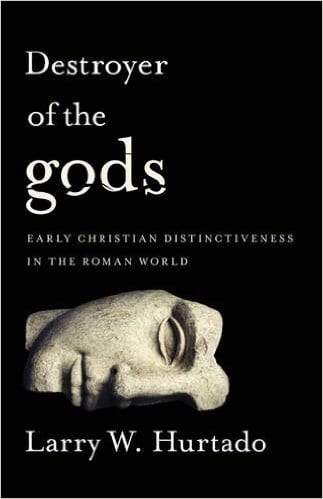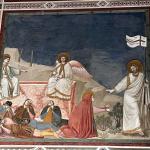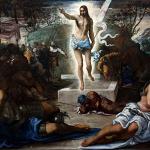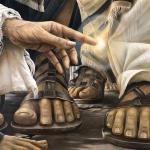 I took two books with me to read on my way to and from SBL – Larry Hurtado’s Destroyer of the Gods: Early Christian Distinctiveness in the Roman World was one of them (the other was Gaventa’s When in Romans). I am currently fascinated with early Christian social history, so I was eager to see what Hurtado had to say.
I took two books with me to read on my way to and from SBL – Larry Hurtado’s Destroyer of the Gods: Early Christian Distinctiveness in the Roman World was one of them (the other was Gaventa’s When in Romans). I am currently fascinated with early Christian social history, so I was eager to see what Hurtado had to say.
There have been several interviews and online discussions about this book already, so I won’t spend time here summarizing the book (You can see Hurtado give a lecture-version of this book HERE). Needless to say, Hurtado sets out to outline how the early Christians were unusual as a religious group in their time, and also to look at the kinds of things that Christians were accused of by others. Hurtado is clear that this is not a volume that intends to break much new ground in the study of early Christianity. Rather, it is more of a big-picture look at how Christianity was perceived by outsiders.
Overall, this work does a fine job of synthesizing the unique elements of early Christian composition (trans-ethnic), habit (rituals and text-orientation), and ethos. There is one blogger who faulted Hurtado for not discussing the cross as a feature of Christianity offensive to pagans. Hurtado responded to this criticism of his work, noting that “the sources don’t foreground that as the key point of contention.” I too had a similar concern about the lack of discussion of Jesus’ crucifixion as a point of shame and potential mockery, but I take Hurtado’s point that it simply is not a main topic raised by opponents of the early Christians. (Still, it is worth asking why critics of Christians did not raise this easy target – i.e., they honor an enemy of the state who was eventually stripped of his honor and dignity)
Furthermore, two things give me pause. Firstly, the shame of the cross is addressed enough in the New Testament (even if obliquely, Heb 12:2; Rom 1:16-17; 1 Cor 1:18; Gal 3:13) that it should factor in somewhere in a book on “distinctiveness.” That is, I find it fair to mirror-read the NT such that the early Christians themselves seemed to anticipate this criticism. Also, I might have included the “Alexamenos” graffiti as part of the critique of Christians, since it is so early (presumably) and a clear mockery.

A second concern I had with the book is that it was difficult for me to get a grasp on the intended audience. It was pitched “popular” enough to be non-technical, but certainly serves as a rather niche topic given the kinds of dialogue partners involved in this kind of discussion. This makes the book difficult to assess. One of my biggest concerns was that Hurtado often talked about criticisms of early Christians, but almost never gave block quotes of those texts. Most of us don’t have that material ready at hand, so we can’t look it up to get context and learn more. I would have greatly desired either the inclusion of more primarily material in block quotes, or an appendix that included extracts from those anti-Christian writings.
These criticisms notwithstanding, I have always admired Hurtado’s work (and assigned some of his Christology books as textbooks), and this is no exception. He has a clear and smooth writing style. He knows his history and has done his homework throughly. He is a measured and careful historian that also can be innovative and creative in analysis. This is definitely one of my favorite reads of 2016.
















